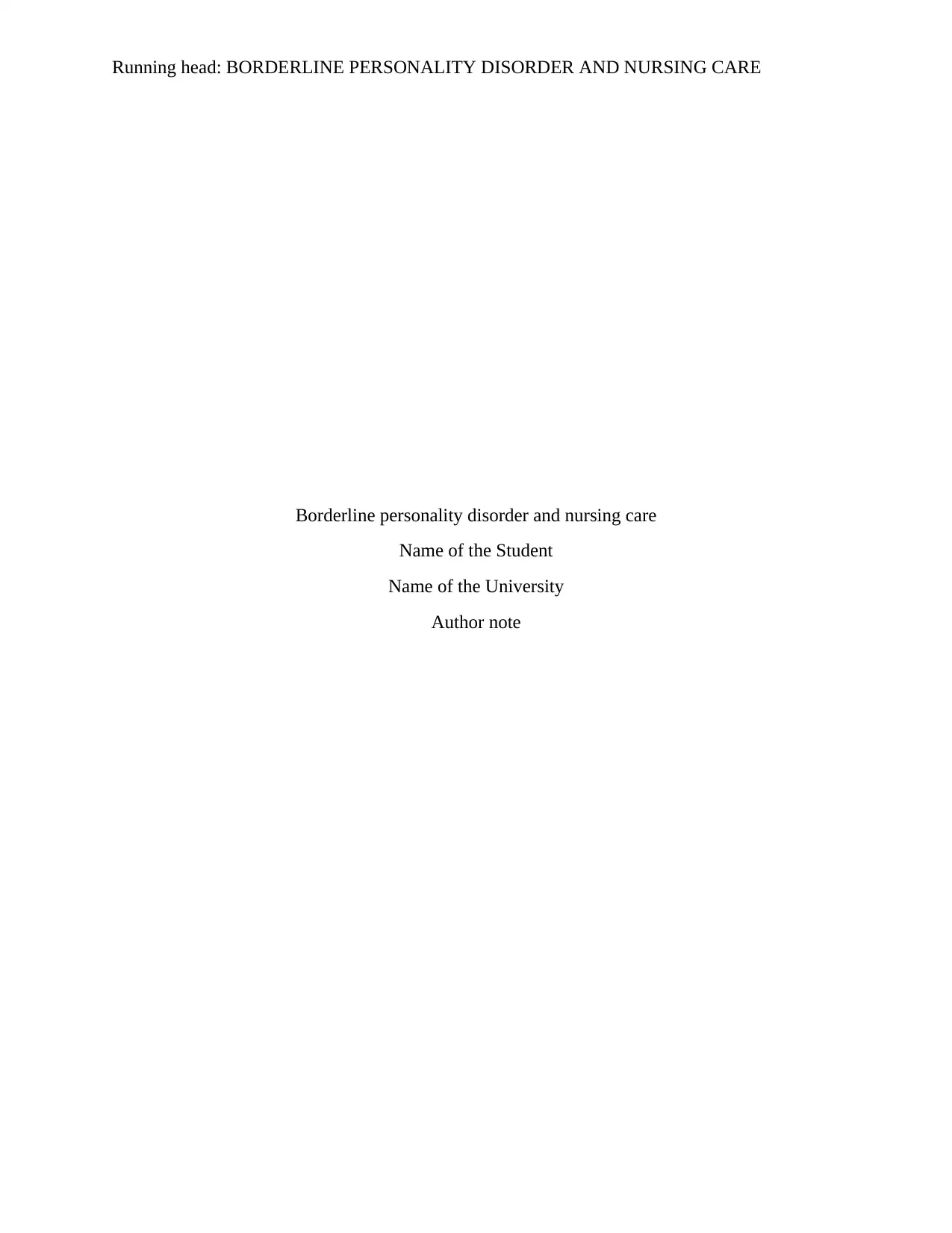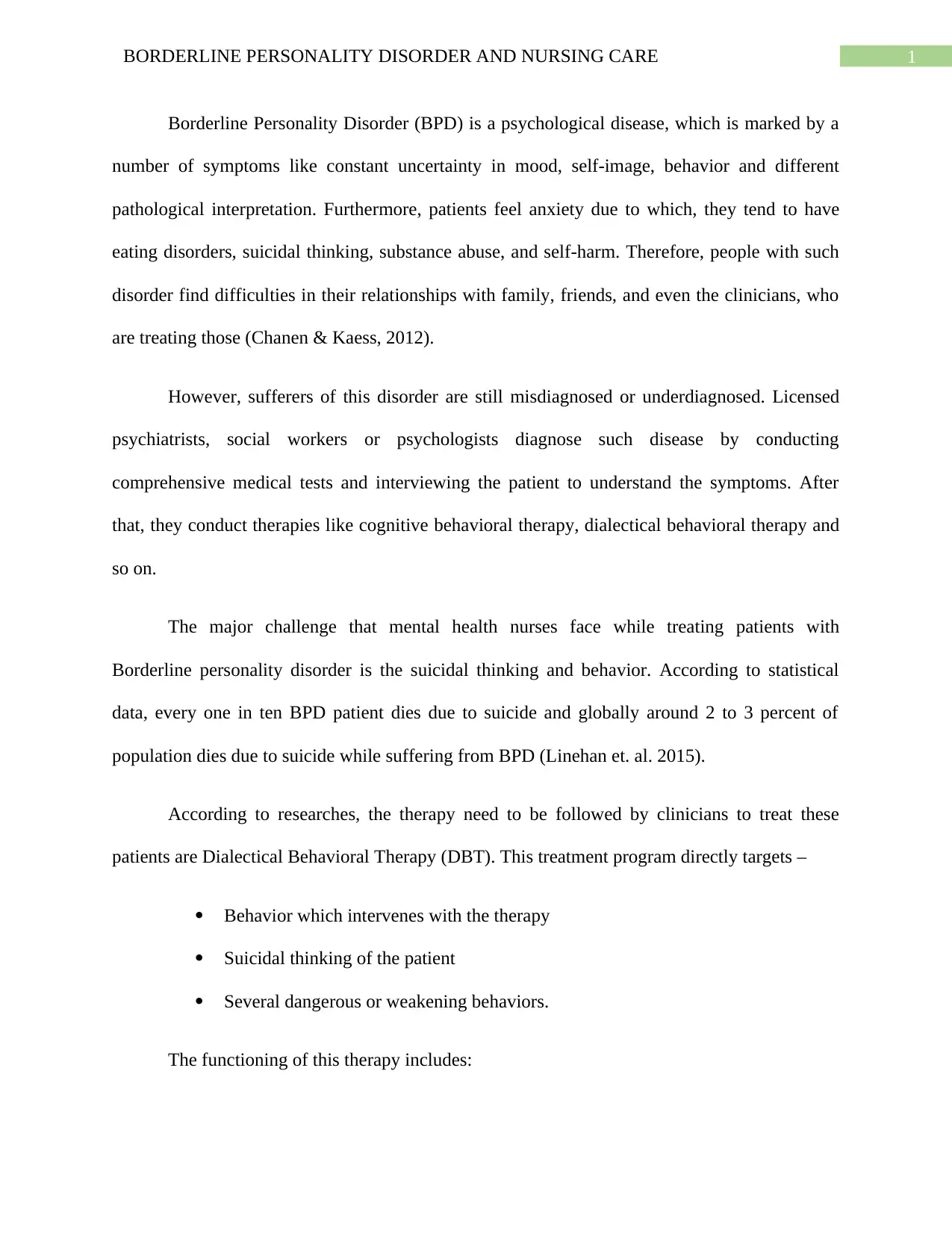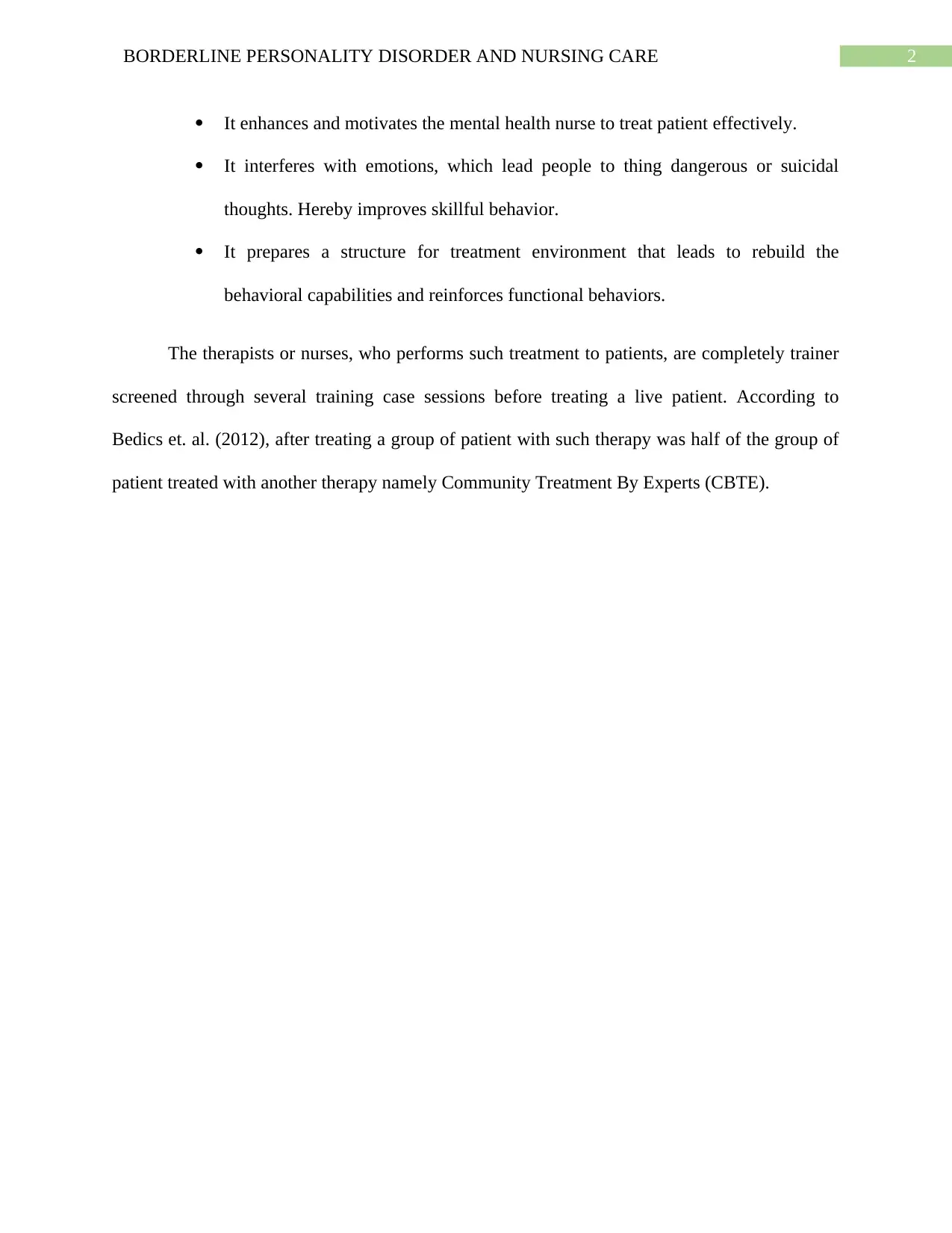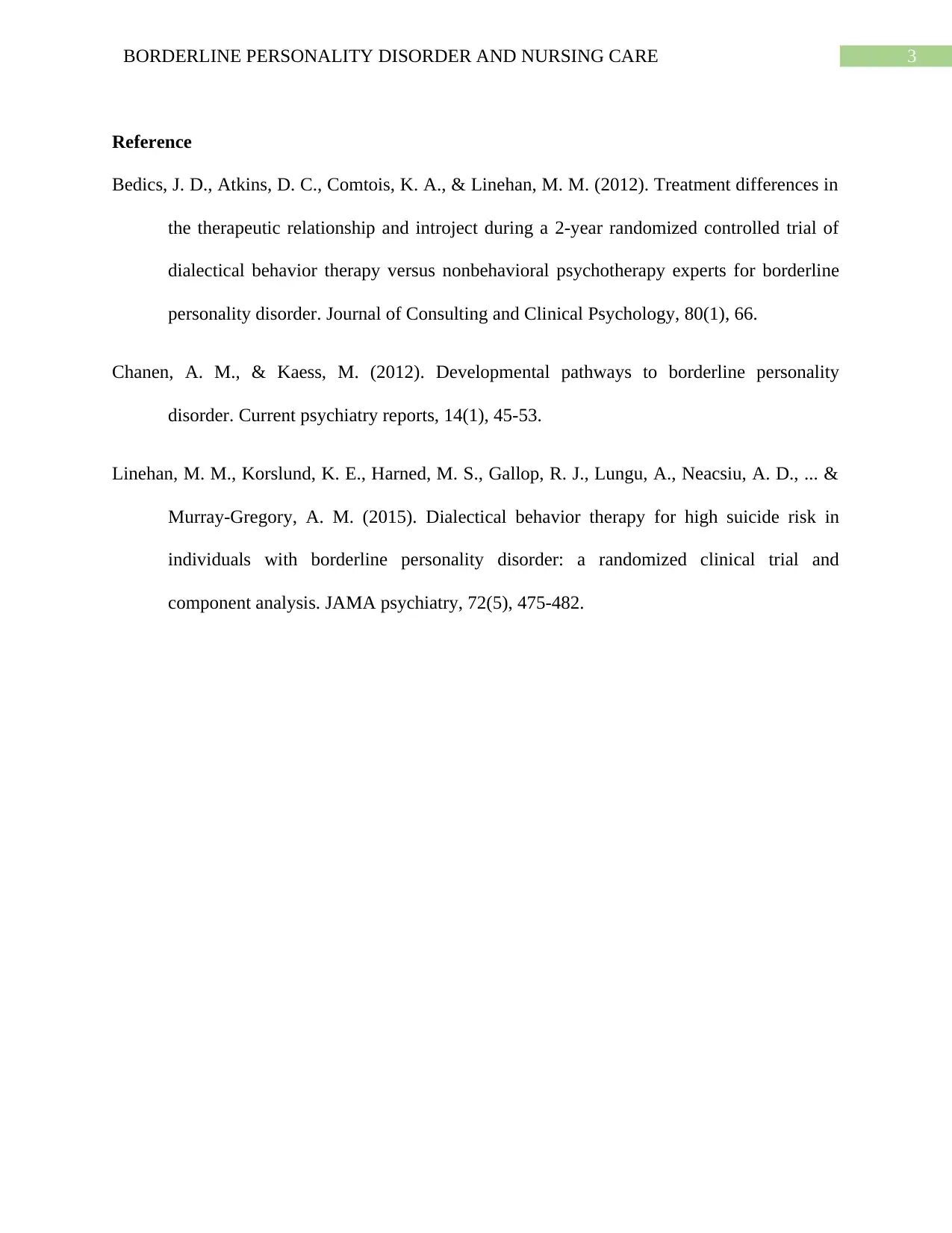Borderline Personality Disorder Nursing Care
VerifiedAdded on 2019/11/20
|4
|588
|393
Report
AI Summary
This report delves into Borderline Personality Disorder (BPD), a psychological disorder characterized by mood instability, self-image issues, and behavioral challenges. It highlights the difficulties faced by nurses in treating BPD patients, particularly concerning suicidal ideation and behavior. The report emphasizes the importance of Dialectical Behavior Therapy (DBT) as a primary treatment approach, detailing its components and effectiveness in managing BPD symptoms and reducing suicide risk. Research findings are cited to support the efficacy of DBT compared to other therapies. The report underscores the need for comprehensive training for nurses involved in BPD care.
1 out of 4











![[object Object]](/_next/static/media/star-bottom.7253800d.svg)